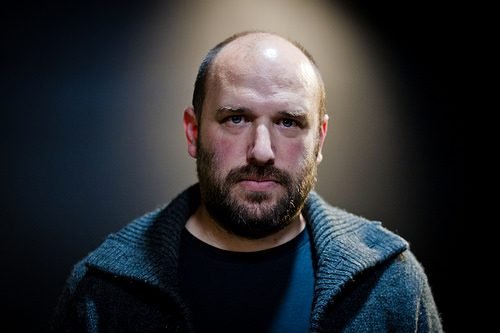
I recently asked readers to submit questions to me they would like me to answer. If you would like to submit a question, please follow the instructions listed here.
Mike asked, “Bruce, As a Pastor, What Was Your View of Arminianism?”
Before I answer this question, let me give a definition of Arminianism:
Arminianism is based on theological ideas of the Dutch Reformed theologian Jacobus Arminius (1560–1609) and his historic supporters known as Remonstrants. His teachings held to the five solae of the Reformation, but they were distinct from particular teachings of Martin Luther, Huldrych Zwingli, John Calvin, and other Protestant Reformers. Jacobus Arminius (Jakob Harmenszoon) was a student of Theodore Beza (Calvin’s successor) at the Theological University of Geneva. Arminianism is known to some as a soteriological diversification of Protestant Calvinist Christianity. However, to others, Arminianism is a reclamation of early Church theological consensus.
Dutch Arminianism was originally articulated in the Remonstrance (1610), a theological statement signed by 45 ministers and submitted to the States General of the Netherlands. The Synod of Dort (1618–19) was called by the States General to consider the Five Articles of Remonstrance. These articles asserted that:
- Salvation (and condemnation on the day of judgment) was conditioned by the graciously-enabled faith (or unbelief) of man;
- The Atonement is qualitatively adequate for all men, “yet that no one actually enjoys [experiences] this forgiveness of sins, except the believer …” and thus is limited to only those who trust in Christ;
- “That man has not saving grace of himself, nor of the energy of his free will,” and unaided by the Holy Spirit, no person is able to respond to God’s will;
- The (Christian) Grace “of God is the beginning, continuance, and accomplishment of any good,” yet man may resist the Holy Spirit; and
- Believers are able to resist sin through Grace, and Christ will keep them from falling; but whether they are beyond the possibility of ultimately forsaking God or “becoming devoid of grace … must be more particularly determined from the Scriptures.”
I was raised in Independent Fundamentalist Baptist (IFB) churches and attended an IFB Bible college. I began my ministerial career holding to what is commonly called one-point Calvinism. I believed salvation was gained by a volitional act of human will, that the Holy Spirit could be resisted, and that once a person was saved he could never fall from grace. Eternal security, also known as once-saved-always-saved, is what sets IFB churches apart doctrinally from Arminian churches. Arminians believe Christians can lose their salvation. Their theology diverges in two directions when it comes to falling from grace. One group believes that Christians can lose their salvation and regain it at a later date. The other group believes that once Christians lose their salvation they can never again be saved. I came into contact with both groups during the twenty-five years I spent in the ministry.
The Bible teaches both Arminianism and Calvinism. That’s what’s so great about the Bible, it can be used to prove almost anything. As a one-point Calvinist, whenever I came upon verses that affirmed the security of the believer, I made sure I exposed the error of Arminianism. When I preached from verses that seem to say that Christians could fall from grace, I usually pounded the pulpit, shouted, and tried to explain away what the verses clearly said. I have no doubt that Arminian preachers did the same at their churches. I didn’t believe that Arminians were false Christians. I just saw them as ignorant of biblical truth. During the eleven years I spent pastoring Somerset Baptist Church in Mount Perry, Ohio, I had the opportunity to preach for a number of Arminian churches: Free Will Baptist, Church of the Nazarene, Christian Union, and Assembly of God. When preaching for these groups, I focused my preaching on the beliefs we shared, and not on our differences. This worked well until I got on the subject of sanctification at a Nazarene church. I so offended the congregation that the pastor told me that I was no longer welcome to preach at his church. I had planned to preach a week-long revival, but after two days I was fired. In retrospect, I shouldn’t have gone anywhere near the doctrine of sanctification, but God was leading and I let the congregation know that there was no such thing as sinless perfection. I knew that saying this would cause offense, but I said it anyway. In my mind, at the time, I believed being true to God was more important than avoiding controversy.
In the 1980s, my theology shifted from one-point Calvinism to John MacArthur-style lordship salvation and five-point Calvinism. At this juncture, my view of Arminianism radically changed. While I still thought many Arminians were Christians, I believed that they preached a corrupted, false gospel of works. More than a few of my Calvinistic ministerial colleagues believed that Arminians were false Christians; that Arminianism was inherently a works-based religion. As a fervent preacher of John Calvin’s gospel, I made Arminianism a frequent target. As an IFB preacher, I was aware that there were Arminians who attended my church. They loved my preaching style and my passion for evangelism, so they chose to ignore my one-point Calvinism. When I became a five-point Calvinist and started preaching the fullness of the doctrines of grace, Arminians felt quite unwelcome and stopped attending church. I don’t blame them for leaving the church. I imagine I would have done the same if my sincere beliefs had been assaulted and ridiculed week after week.
In late 1990s, I moved away from five-point Calvinism and adopted more of a hybrid theology. My focus at this point in the ministry was on how Christians lived out the gospel. Instead of focusing on doctrinal purity and salvation, I turned my attention towards promoting good works. I was troubled by the disconnect between Evangelical belief and Evangelical practice. Instead of focusing on doctrine, I focused on lifestyle. I came to the conclusion that true Christianity was not measured by what we said, but by what we did. If I had to pick a particular theological system of thought that best fit my beliefs at this time, it would’ve been Anabaptist or Mennonite theology. This change theologically coincided with my changing political beliefs. As my political beliefs moved leftward, so did my theology. The last church I pastored was Victory Baptist Church in Clare, Michigan. A man who was a member of the church in Mount Perry, Ohio came to hear me preach one Sunday. He remarked afterward that I was preaching more of a social gospel. I suspect he was right. Fifteen years later, as a card-carrying member of First Church of Atheism, I still think that beliefs are measured by behavior; that what matters the most is not our beliefs, but our actions. Of what value is humanism if it fails to motivate us to do good works?
Ironically, many of my former IFB congregants and colleagues in the ministry believe that I am still a Christian. This is where the doctrine of once-saved-always-saved becomes absurd. Here I am, a blasphemer of God and a denier of everything Evangelicals hold dear, yet because, at a moment in time, I prayed the sinner’s prayer, I am forever a Christian. Nothing I can say or do will void my Lifetime Eternal Life Warranty®. I am forever married to Jesus, even if I’m a whore. This means that the ex-Christian readers of this blog are still saved. Good news, right? We can sleep in on Sundays and still go to heaven when we die! Proponents of once-saved-always-saved say that this doctrine promotes the grace of God; that God is not a quitter. What it actually does, however, is make a mockery of God’s grace. If subsequent belief and lifestyle do not matter, Dietrich Bonhoeffer was right: Evangelicals are preaching a gospel of “cheap grace.”
Arminians, on the other hand, believe that Christians can and do fall from grace. Such people see me as someone who was once saved and now is lost. I prefer this designation. It honestly describes my life. I once was a Christian; I once was a follower Jesus; I once devoted myself to the teachings of Christ; and now I am an unbeliever. Arminians take my testimony at face value. They believe me when I say, I once was saved and now I am lost.
It is not uncommon for IFB churches to have hundreds of conversions each year. Yet, attendance grows very little. Shouldn’t there be a connection between soul saved and asses in the pew? I know one church that prides itself in having won tens of thousands of souls to Christ, yet the church runs two thousand or so people in attendance. Surely, saying “I am a Christian” ought to mean something. I find myself thinking that I take Christianity and the Bible more seriously than most Evangelicals. If Jesus is all that Evangelicals say he is, shouldn’t how they live their lives reflect this? One need only look at Evangelical support of Donald Trump to see how disconnected behavior has become from belief. While there is nothing Evangelicals can say that would ever win me back to Jesus, I might be persuaded to admire their religion and their God from afar if I ever saw that their beliefs made them better people. Unfortunately, most Evangelicals live lives no different from those of the unwashed, uncircumcised Philistines of the world. In fact, I have met atheists, agnostics, humanists, Buddhists, and pagans who live exemplary lives; people who love their fellow-man and do what they can to make the world a better place to live. If forced to choose, I’m with godless humanists; people who try their best to meaningfully impact the lives of others as they march to hell.
About Bruce Gerencser
Bruce Gerencser, 61, lives in rural Northwest Ohio with his wife of 40 years. He and his wife have six grown children and twelve grandchildren. Bruce pastored Evangelical churches for twenty-five years in Ohio, Texas, and Michigan. Bruce left the ministry in 2005, and in 2008 he left Christianity. Bruce is now a humanist and an atheist. For more information about Bruce, please read the About page.
Bruce is a local photography business owner, operating Defiance County Photo out of his home. If you live in Northwest Ohio and would like to hire Bruce, please email him.
Thank you for reading this post. Please share your thoughts in the comment section. If you are a first-time commenter, please read the commenting policy before wowing readers with your words. All first-time comments are moderated. If you would like to contact Bruce directly, please use the contact form to do so.
Donations are always appreciated. Donations on a monthly basis can be made through Patreon. One-time donations can be made through PayPal.





